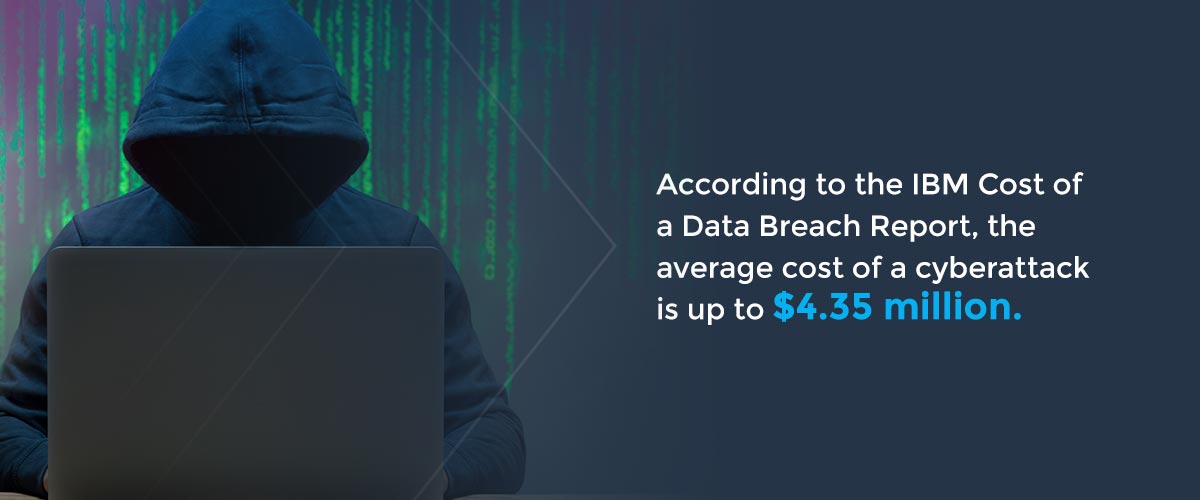In the complex and competitive world of manufacturing, where product quality and operational efficiencies are…

Cybersecurity is one of the most significant threats facing businesses today, including those in the manufacturing industry. Some manufacturers may think cybercrime won’t affect them or believe they don’t have much data hackers would find valuable. However, manufacturing was the sixth most-targeted industry for cyber attacks between 2020 and 2021. The increasing interconnectedness of technology and the rising amount of data manufacturers access have created more reasons manufacturers need cybersecurity.
Malware attacks are a significant threat to manufacturers and their networks and data. The damage these attacks can cause should be enough to make manufacturers consider improving their cybersecurity strategies. Fortunately, understanding malware and how it works can help you make the best decisions for protecting your manufacturing company.
What Are Malware and Ransomware?
Malware is a combination of the words “malicious” and “software” and a type of software hackers introduce into a network to harm or steal data. Malware is an umbrella term that includes several cyberattack methods, like ransomware, which holds devices or files hostage and encrypts them until the victim pays the hacker a ransom.
Manufacturers should understand the different forms of malware attacks to develop effective strategies for reducing their risk:
- Spyware: Cybercriminals use spyware to track a network user’s keystrokes to capture passwords, usernames, credit card numbers and other online activity.
- Adware: Adware serves users spammy advertising that can slow computers and lead victims to download other malware.
- Viruses: Viruses hide in infected files sent to users. When the user clicks on the file, the virus spreads to other programs and corrupts files.
- Trojans: Trojan programs disguise themselves as legitimate software so users will download them. The program then creates backdoors in the system to give hackers greater access.
- Worms: Worms spread through security glitches in a network or system to damage devices.
- Bots: Hackers use computers infected with bots to launch other cybercrime attacks. Bots perform automated functions without requiring interaction from the user, so they can create web traffic without the user’s involvement.
Through these malware attacks, cybercriminals search for information like:
- Credit card numbers
- Bank account information
- Network and application passwords
- Manufacturer secrets and business insight
- Product designs
How Does Manufacturer Malware Work?
Hackers use several strategies to harm or steal data from manufacturers. Although manufacturers may handle different types and amounts of vulnerable information on their networks, they still have data many cybercriminals may find useful.
Here are a few of the top tactics hackers may use when targeting companies in the manufacturing sector:
- Ransomware: When hackers use ransomware on manufacturers, they may steal product specifications, intellectual property or customer information and demand a ransom before returning the data. Often, hackers won’t go away, even after the manufacturer pays the ransom.
- Phishing schemes: In a phishing attempt on a manufacturer, the hacker sends an email to employees pretending to be a reputable company asking for personal information. Phishing uses employee and network vulnerability to trick employees into giving away passwords, credit card information and more.
- Posing as company executives: This strategy requires that the hacker access executives’ email or social media accounts within the manufacturing company. Cybercriminals send malicious messages to employees asking for network access or other privileges.
- Attacks on manufacturing equipment: Sophisticated industrial manufacturing technology often operates on the cloud, creating another access point through which hackers can gain entry to a network. In this strategy, the hacker may install bots on the technology to hijack it for their own purposes.

Examples of Manufacturer Cybercrime Attacks
Malware attacks can cause significant financial damage to manufacturers. According to the IBM Cost of a Data Breach Report, the average cost of a cyberattack is up to $4.35 million. The cost of individual malware attacks depends on the extent of the data breached and how the hackers plan to use the data. Cybercriminals are also evolving with technology to launch more sophisticated attacks.
For example, cybercriminals can launch probes into a manufacturer’s network and determine weak spots in their cybersecurity. Once the hacker identifies the vulnerabilities, they introduce malware into the system through viruses or trojans and target specific systems.
If the hacker wants to steal data for a ransomware attack, they might first take control of manufacturing equipment or other hardware to divert the attention of the IT team, letting them carry out more extensive attacks elsewhere. Then, the cybercriminal can steal and encrypt the manufacturer’s intellectual property or internal processes to induct a ransomware attack. In this scenario, the manufacturer would be forced to pay a ransom before they can retrieve schematics or product diagrams.
Ransomware poses a significant problem for manufacturers who don’t seek outside help when they suspect a cyberattack. The manufacturer might pay multiple ransoms, expecting the malware problem to disappear after they pay. However, hackers rarely return encrypted data after a ransom is paid. Cybercriminals may even delete or leak the data despite receiving the ransom.
How to Prevent Attacks From Ransomware on Manufacturers
Malware attacks are serious issues that can cost manufacturers time and money resolving the problem and retrieving data. The good news is that manufacturers can prevent most cyberattacks by implementing proven security strategies:
1. Involve and Educate Your Team
The first step in improving your manufacturing company’s cybersecurity is educating your employees and IT team about cybersecurity. Your team should understand the implications of a malware attack. Train employees to spot and avoid phishing scams so they can do their part to protect your company’s data.
You should also ask your cybersecurity team questions to determine security weaknesses in your system. Your cybersecurity team can help you identify potential issues and develop solutions.
2. Audit Your Risks
Employee passwords, company vendors and data storage are all potential vulnerabilities. Hackers can leverage weaknesses in your system to access sensitive information. Audit your business’ risks, including vulnerabilities with:
- Data storage: Manufacturers can audit their data storage and protect information through cybersecurity strategies like penetration testing, cyber auditing and conducting background checks on employees.
- Vendors: Another strategy for improving cybersecurity for manufacturers is auditing vendors and partners. The more vendors and outsourced service providers access your data, the more potential weak spots in your security system. Conduct an audit of your vendors and increase security measures for vendor communications.
- Passwords: Passwords are especially susceptible to hacking. Audit employee passwords and enforce regular password changes where needed.
3. Update Your Systems and Software
Companies issue software patches and updates as technology changes to keep systems working efficiently. Manufacturers must also evolve to remain vigilant against emerging cybersecurity threats. Stay on top of updating your software to ensure hackers can’t take advantage of an outdated system.
4. Back up Your Data
A primary solution for resisting a ransomware attack is to back up critical files regularly. If hackers gain access to data and launch a ransomware attack, having a backed-up version of the information can save you from the pressure to pay the ransom. Encrypt your data if possible so malicious parties can’t read it.
Contact MANTEC for Manufacturing Cybersecurity Help
Malware is a significant threat to manufacturers and their critical data. With the right experts on your side, you can implement an effective cybersecurity strategy that protects your business and its essential information.
If you manage a manufacturing business in South Central Pennsylvania and want to know more about guarding your business against hacking, partner with MANTEC for cybersecurity advice. MANTEC is a nonprofit with decades of experience offering manufacturers expert advice, cyber awareness training and a vast library of other resources.
Contact us today to learn how we can help your manufacturing company succeed.



